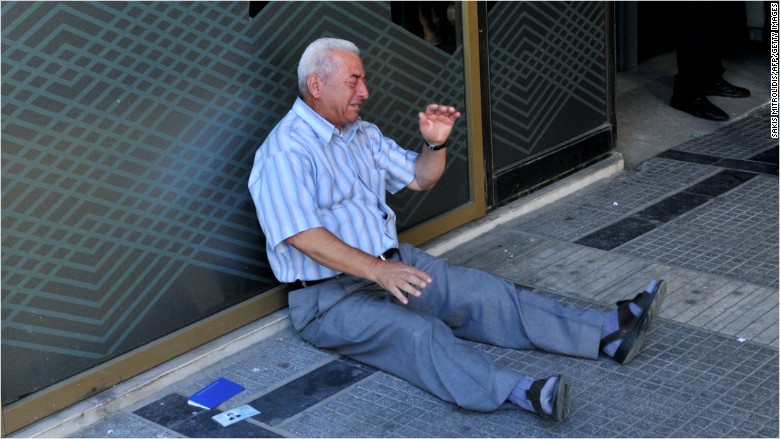
The Greek pension system is messy, convoluted and downright weird, giving preferential treatment to some workers like hairdressers, sausage makers and policemen, while penalizing farmers.
The expensive, hodge-podge system has contributed to Greece's debt crisis, so the government must commit to fix it before it gets its $96 billion bailout.
But the Greek government has resisted these changes for years.
Why? Because it's exceedingly difficult to overhaul a system that citizens (aka voters) depend on.
To understand the big, fat, Greek pension problem, here's a look at some of the key facts and numbers:
1) The average retirement age in Greece has been falling for years, with men retiring at 62 and women retiring at 60, according to OECD data, even though the 'official' retirement age was recently raised to 67.
Pensions expert Professor Platon Tinios, who works at the University of Piraeus in Athens, said there are countless exceptions to the rules, which allow some Greeks to retire as early as age 50. In many cases, workers are motivated to retire early to avoid the dismal, unstable job market.
What about the retirement age of 67? "Hardly anyone who is retiring now is affected by the new retirement age," he said, noting that it could take a generation for the rules to take effect.
2) Greece spends more on pensions as a proportion of its economy than any country in the European Union -- more than double the spending of Estonia, Ireland and Slovakia.
3) Roughly 2.7 million Greeks are receiving pension benefits out of a population of 11 million. This figure has been rising for years and is expected to keep climbing as the population ages.
4) Greece has one of the worst pension systems in the world when it comes to financial sustainability, due to the nation's high debts and high ratio of older dependents. An Allianz report from 2014 shows Greece's pension system ranks 42nd out of 50 countries. But Allianz notes that recent pension reforms gave Greece a boost in the rankings, after it was 'bottom of the barrel' in 2011.

It's true that Greece has already made substantial cuts. Pensions paying over 2,000 euros per month were cut by more than 40%, while pensions paying less than 1,000 euros per month were cut by 14%, said Tinios.
But further reforms are needed because Tinios says the rules have generally protected the interests of Baby Boomers, high earners and well-connected groups, while shifting the burden to the very old, the very young and the poor.
And the dwindling number of young workers can't provide enough support.
Related: The U.S. is facing a $1 trillion pension shortfall
On Wednesday, the Greek parliament must vote to approve plans to "improve [the] long-term sustainability of the pension system," according to an agreement Greece signed with its European creditors on Monday.
But Greece's Prime Minister Alexis Tsipras said Tuesday he does not believe in the new economic measures. Regardless, he said he will have to follow through on them in order to receive a third bailout and avoid bankrupting his country.



